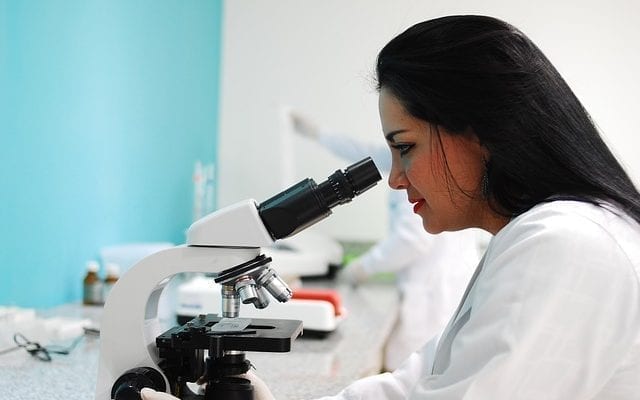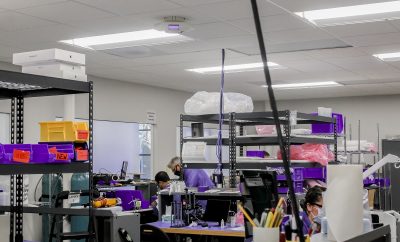
Lifestyle
New Company Developing At-Home Test Kit for Infectious Diseases
Mammoth Biosciences, a new biotech company co-founded by legendary researcher Jennifer Doudna, is developing a device that will be able to detect a wide range of diseases, including malaria, tuberculosis, and Zika, all from the comfort of your home.
Mammoth Biosciences is using a technology that gives researchers the ability to edit the human genome. The tool called CRISPR allows for the correcting of genetic defects as well as the treating and preventing of infectious diseases. The device being developed is a credit-card sized paper strip and smartphone app combo, which can be used to retrieve results in as little as 30 minutes.
Users simply add a fluid sample to the small paper trip, and wait for the panel to change colors. Once this has happened, you take a picture of the strip, and upload it to the Mammoth companion app for analysis.
While the potential for applying this disease detection technology in humans is clear, it is also applicable for a number of others things, including agriculture, treating sick animals, or even determining harmful microbes found in soil. Despite this, CEO Trevor Martin has said that Mammoth Biosciences will focus on human health applications for the time being.
Both Martin and Ashley Tehranchi, who is operating as the Chief Technology Officer have a PhDs from Stanford. Research is helmed by Berkeley PhD students Janice Chen and Lucas Harrington. Together, the team has been able to raise capital funding from a variety of sources to develop this device.
Martin told TechCrunch “Because we have this really transformative platform for disease detection, it’s really allowing us to rethink the business models about building this type of biotech company. Because the technology is so programmable, we’re really leveraging [to make] Mammoth a platform company for detection.”
While still in prototype stages, initial research has shown promising results in being an effective way to diagnose patients. The company has plans to commercialize the device within the next few years. Martin has yet to state how much the in-home tests will cost, but he assures the technology will be “accessible and affordable.”
CRISPR technology made headlines earlier this year after researchers successfully used it to detect Zika, dengue, HPV virus, along with harmful bacteria and cancer mutations in human blood, urine and saliva. Detection of these infections and cancer cells led to quicker diagnoses and patient treatment planning.
As for Mammoth, their next big step is beginning the search for more partners in the form of universities and corporations, in order to fully bring their technology into the healthcare system, allowing for physicians to diagnose patients quicker, which can be crucial in saving lives.





0 comments